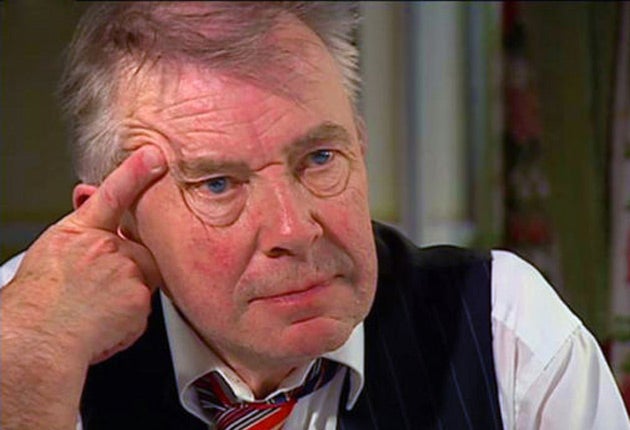A challenging day for Ray Gosling in murder probe

Ray Gosling had spent yesterday in the full glare of the media spotlight, insisting he would not disclose any more details about his extraordinary on-air revelation that he had smothered his dying lover to death. Today, it was the turn of the police to try to persuade the 70-year-old television presenter to be more forthcoming.
Shortly before 8am, the veteran broadcaster and gay rights campaigner was taken to Oxclose Lane police station near his home in sheltered accommodation in Nottingham, where he spent the day being quizzed by murder squad detectives investigating his apparent confession. In a documentary, he told BBC viewers that he had killed the unnamed man during the final stages of an Aids-related illness.
His solicitor Digby Johnson told reporters gathered outside the station that the investigation was at a “very, very early stage”. He said: “There is no saying how long Ray will be here, but he is in good spirits and I would ask you to respect these are very difficult times for Ray because, by its very nature, the things we are talking about are as distressing as could be.”
Among the problems faced by the detectives investigating the decades-old case is that Mr Gosling did not reveal the identity of the dead man, nor exactly when the incident took place. It is known that the man had Aids and that it was in the early days of the disease – effectively narrowing it down to some time in the 1980s. Close friends have confirmed that he had spoken about it in the past and had been largely untroubled by his actions.
However, some newspapers challenged Mr Gosling’s version of events, claiming that in the original “confession” and resulting interviews he had appeared to contradict himself. In the programme Inside Out, which was broadcast in the East Midlands on Monday night, he described the pact he had made with the man who was his lover but not his partner.
Strolling through a graveyard, he said: “In a hospital one hot afternoon, the doctor said ‘There’s nothing we can do’, and he was in terrible, terrible pain. I said to the doctor ‘Leave me just for a bit’ and he went away. I picked up the pillow and smothered him until he was dead. The doctor came back and I said ‘He’s gone’. Nothing more was ever said.”
Nottinghamshire Police declined to reveal any further details of the case, which has become a highly sensitive one for the force both in terms of the investigation and handling the intense media interest. One experienced murder squad detective said officers had to act. “In a high profile case like this where a confession is made on national television, it is important that the police are seen to act and they would have waited until the immediate media attention died down before they made the arrest,” he told The Independent.
Any decision made by the Crown Prosecution Service will be influenced by new guidance on when prosecutions should be brought for assisted suicide, due to be published next week. The new guidance will replace interim guidelines introduced last year, after a House of Lords judgment in the case of Debbie Purdy, a multiple sclerosis sufferer who wanted to know if her husband would be prosecuted for helping her end her life at the Dignitas clinic in Switzerland.
The BBC again defended its decision to broadcast the programme on the grounds of “journalistic integrity” and said it had been under no obligation to report the matter to the police.
____________________________________________________________
